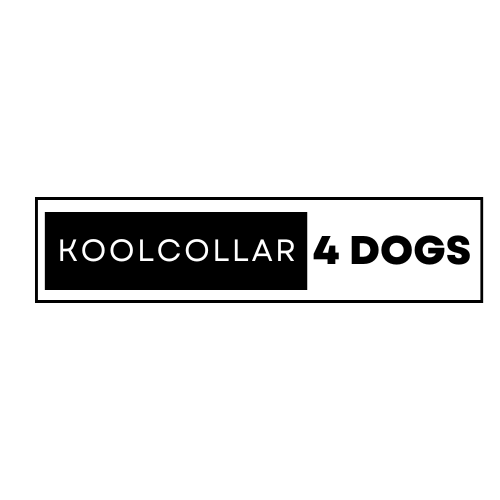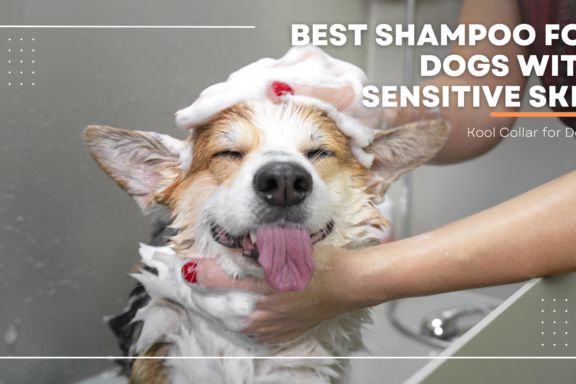What is constipation in dogs?
Constipation in dogs refers to the infrequent or difficult passage of stools. It’s a common digestive issue that can affect canines of all ages and breeds. When a dog experiences constipation, they may strain excessively during defecation, produce small, hard stools, or go for extended periods without a bowel movement.
As pet owners, we understand the discomfort and distress that constipation can cause our furry companions. It’s crucial to recognize the signs and address the underlying causes promptly to ensure their well-being and prevent further complications.
Also Read Hydrolyzed Protein Dog Food
In this comprehensive guide, we’ll explore the various aspects of constipation in dogs, including its causes, symptoms, home remedies, medical treatments, and preventive measures. By understanding this condition, we can better equip ourselves to provide the necessary care and support for our beloved canine companions.
Signs and symptoms of constipation in dogs
Recognizing the signs and symptoms of constipation is the first step in addressing this issue. Here are some common indicators to watch out for:
- Straining or difficulty during bowel movements
- Producing small, hard, and dry stools
- Lack of bowel movements for more than 48 hours
- Loss of appetite or decreased interest in food
- Lethargy or decreased energy levels
- Vomiting or signs of abdominal discomfort
- Visible signs of discomfort, such as whining or restlessness
If you notice any of these symptoms, it’s essential to take prompt action and seek guidance from a veterinarian if the condition persists or worsens.
Causes of constipation in dogs
Constipation in dogs can arise from various underlying factors, including:
- Dietary Factors:
- Lack of fiber in the diet
- Dehydration or insufficient water intake
- Sudden changes in diet or low-quality dog food
- Medical Conditions:
- Anal gland issues or impaction
- Intestinal blockages or obstructions
- Hormonal imbalances or thyroid disorders
- Neurological disorders affecting the digestive system
- Certain medications or side effects
- Environmental and Behavioral Factors:
- Lack of exercise or sedentary lifestyle
- Stress or anxiety
- Changes in routine or surroundings
- Ingestion of foreign objects or non-food items
It’s crucial to identify the root cause of constipation to provide appropriate treatment and prevent recurrence.
How to relieve constipation in dogs at home
In some cases, mild constipation can be alleviated through home remedies. However, it’s essential to consult with a veterinarian before attempting any home treatments, especially if the condition persists or worsens. Here are some safe and effective home remedies:
- Increase Fluid Intake: Ensure your dog has access to fresh, clean water at all times. Adequate hydration can help soften stools and promote regular bowel movements.
- Dietary Adjustments: Gradually introduce high-fiber foods, such as pumpkin, psyllium husk, or a fiber supplement recommended by your veterinarian. These can help regulate bowel movements and provide relief.
- Exercise: Regular physical activity can stimulate the digestive system and encourage bowel movements. Take your dog for walks or engage in playtime to promote movement.
- Gentle Abdominal Massage: Gently massaging your dog’s abdomen in a clockwise direction can help stimulate bowel movements and provide relief.
- Warm Compresses: Applying a warm compress or warm water bottle to your dog’s abdomen can help relax the muscles and promote bowel movements.
It’s important to note that home remedies may not be effective in all cases, and prolonged constipation can lead to more serious complications. If your dog’s condition does not improve within 24-48 hours, it’s essential to seek veterinary attention.
When to see a veterinarian for constipation in dogs
While home remedies can be helpful in mild cases, there are certain situations where it’s crucial to seek professional veterinary care:
- Severe or Prolonged Constipation: If your dog has not had a bowel movement for more than 48-72 hours, or if the constipation is accompanied by vomiting, lethargy, or other concerning symptoms, immediate veterinary attention is necessary.
- Presence of Blood or Mucus: If you notice blood or mucus in your dog’s stools or around the anal area, it could indicate a more serious underlying condition that requires prompt medical attention.
- Suspected Obstruction: If you suspect your dog has ingested a foreign object or has a potential intestinal blockage, seek veterinary care immediately, as this can be a life-threatening situation.
- Chronic or Recurrent Constipation: If your dog experiences frequent bouts of constipation, it’s essential to have a veterinarian evaluate the underlying cause and provide appropriate treatment.
Your veterinarian may recommend diagnostic tests, such as blood work, X-rays, or ultrasounds, to identify the root cause of constipation and determine the most effective course of treatment.
Medical treatments for constipation in dogs
In cases where home remedies are ineffective or when constipation is severe or prolonged, your veterinarian may recommend medical treatments. These can include:
- Laxatives or Stool Softeners: Prescription laxatives or stool softeners can help soften and promote the passage of stools.
- Enemas: In some cases, an enema may be administered to help clear the impacted feces and provide relief.
- Fluid Therapy: If dehydration is contributing to constipation, your veterinarian may recommend fluid therapy to restore proper hydration levels.
- Dietary Changes: Your veterinarian may recommend a specialized diet or dietary supplements to help regulate bowel movements and promote digestive health.
- Surgery: In rare and severe cases, surgical intervention may be necessary to remove intestinal obstructions or address underlying medical conditions contributing to constipation.
It’s essential to follow your veterinarian’s instructions carefully and administer any prescribed medications or treatments as directed to ensure your dog’s recovery and well-being.
Preventing constipation in dogs
While addressing constipation is crucial, preventing its occurrence is equally important. Here are some effective strategies to help prevent constipation in dogs:
- Maintain a Balanced Diet: Provide your dog with a high-quality, balanced diet that includes adequate fiber and moisture content. Consult with your veterinarian to ensure your dog’s dietary needs are met.
- Encourage Regular Exercise: Regular physical activity helps stimulate the digestive system and promote regular bowel movements. Engage your dog in daily walks, playtime, or other forms of exercise appropriate for their age and breed.
- Ensure Proper Hydration: Make sure your dog has access to fresh, clean water at all times. Adequate hydration is essential for maintaining healthy digestion and preventing constipation.
- Monitor for Potential Obstructions: Be vigilant about preventing your dog from ingesting foreign objects or non-food items, as these can lead to intestinal blockages and constipation.
- Manage Stress and Anxiety: Stress and anxiety can contribute to digestive issues, including constipation. Provide a calm, comfortable environment for your dog, and consider using calming aids or supplements if recommended by your veterinarian.
- Regular Veterinary Check-ups: Routine check-ups with your veterinarian can help identify and address any underlying health conditions that may contribute to constipation or other digestive issues.
By implementing these preventive measures, you can help minimize the risk of constipation and promote overall digestive health in your beloved canine companion.
Diet and nutrition tips for preventing constipation in dogs
Proper diet and nutrition play a crucial role in maintaining a healthy digestive system and preventing constipation in dogs. Here are some dietary tips to consider:
- Increase Fiber Intake: Incorporate high-fiber foods into your dog’s diet, such as pumpkin, psyllium husk, or a fiber supplement recommended by your veterinarian. Fiber helps regulate bowel movements and promotes regular elimination.
- Ensure Adequate Hydration: Provide your dog with fresh, clean water at all times. Proper hydration helps soften stools and prevents constipation.
- Gradually Introduce Dietary Changes: When transitioning to a new diet or introducing new foods, do so gradually to allow your dog’s digestive system to adjust. Sudden dietary changes can lead to digestive upset and constipation.
- Avoid Low-Quality or Highly Processed Foods: Opt for high-quality, nutrient-dense dog foods that are free from fillers, artificial additives, and preservatives, as these can contribute to digestive issues.
- Consider Probiotics and Digestive Enzymes: Consult with your veterinarian about incorporating probiotics or digestive enzymes into your dog’s diet. These supplements can help support a healthy gut microbiome and improve digestion.
- Monitor Portion Sizes: Overfeeding or underfeeding can contribute to constipation. Follow the recommended portion sizes based on your dog’s age, breed, and activity level.
By providing a balanced, fiber-rich diet and ensuring proper hydration, you can help promote regular bowel movements and prevent constipation in your furry friend.
Natural remedies for constipation in dogs
In addition to dietary adjustments, there are several natural remedies that can help alleviate constipation in dogs. However, it’s essential to consult with your veterinarian before trying any new remedies, as some may interact with medications or be unsuitable for certain health conditions. Here are some natural options to consider:
- Pumpkin: Pumpkin is a natural source of fiber and can help soften stools and promote regular bowel movements. You can mix a tablespoon or two of pure pumpkin puree (not pie filling) into your dog’s food.
- Psyllium Husk: Psyllium husk is a soluble fiber that can help regulate bowel movements. Follow your veterinarian’s recommended dosage and mix it with your dog’s food or water.
- Coconut Oil: Coconut oil has natural laxative properties and can help lubricate the digestive system. Start with small amounts and gradually increase as needed, following your veterinarian’s guidance.
- Ginger: Ginger has anti-inflammatory properties and can help stimulate digestion. You can add a small amount of fresh ginger or ginger powder to your dog’s food or offer ginger treats.
Also Read Treats for Dogs with Sensitive Stomach
- Slippery Elm Bark: Slippery elm bark has a soothing effect on the digestive system and can help alleviate constipation. It’s available in powder or capsule form and should be administered according to your veterinarian’s recommendations.
- Exercise and Massage: Regular exercise and gentle abdominal massages can help stimulate bowel movements and provide relief from constipation.
Remember, while natural remedies can be effective, it’s crucial to consult with your veterinarian before trying any new treatments, especially if your dog has underlying health conditions or is taking medications.
Conclusion
Constipation in dogs is a common digestive issue that can cause discomfort and potentially lead to more serious complications if left untreated. By understanding the causes, recognizing the signs and symptoms, and implementing appropriate home remedies, dietary adjustments, and preventive measures, we can help alleviate and prevent constipation in our canine companions.
Remember, seeking veterinary guidance is essential, especially in cases of severe or prolonged constipation, or if you suspect an underlying medical condition. Early intervention and proper treatment can help restore your dog’s digestive health and prevent further complications.
Maintaining a balanced diet, ensuring adequate hydration, promoting regular exercise, and monitoring your dog’s overall well-being are key to preventing constipation and supporting their overall health and happiness.
If you’re concerned about your dog’s digestive health or have any questions regarding constipation, don’t hesitate to reach out to our team of experienced veterinarians. We’re here to provide personalized guidance, recommend appropriate treatments, and help you ensure your furry companion’s comfort and well-being. Schedule an appointment today by calling [insert phone number] or visiting our website at [insert website URL].




